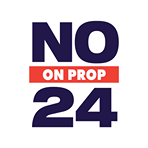Why Californians Should Vote No on Proposition 24

The Center for Digital Democracy (CDD) announced today its opposition to the California Privacy Rights Act (CPRA), also known as Proposition 24 (link is external), which will appear on the November 2020 California general election ballot. CDD has concluded that Prop 24 does not sufficiently strengthen Californians’ privacy and may, in fact, set a new, low, and thus dangerous standard for privacy protection in the U.S.
We need strong and bold privacy legislation, not weaker standards and tinkering at the margins. We need digital privacy safeguards that address the fundamental drivers of our eroding privacy, autonomy, and that redress the growing levels of racial and social inequity. We need rules that go to the heart of the data-driven business model and curtail the market incentives that have created the deplorable state of affairs we currently face. What we need are protections that significantly limit data uses that undermine our privacy, increase corporate manipulation and exploitation, and exacerbate racial and economic inequality. We need default privacy settings that limit the sharing and selling of personal information, and the use of data for targeted advertising, personalized content, and other manipulative practices. We need to ensure privacy for all and limit any pay-for-privacy schemes that entice the most vulnerable to give up their privacy. In other words, we need to limit harmful data-use practices by default, and place the interests of consumers above market imperatives by allowing only those data practices that are not harmful to individuals, groups, and society at large. Prop 24 does none of that.
Specifically, Prop 24 continues on the path of a failed notice-and-choice regime, allowing the much more powerful companies to set unfair terms. Instead, privacy legislation should focus on strong default settings and data-use practices that are allowable (“permissible uses”) and prohibiting all others. These safeguards should be in place by default, rather than forcing consumers to opt out of invasive advertising. Prop 24, in contrast, does not provide effective data-use limitations; instead it continues to limit data sharing and selling via an opt-out, rather than declaring them to be impermissible uses, or at minimum requiring an opt-in for such practices. Even “sensitive data” under Prop 24 is protected only via a consumer-initiated opt-out, rather than prohibiting the use of sensitive personal data altogether.
Equally concerning, Prop 24 would expand rather than limit pay-for-privacy schemes. Under the terms of Prop 24, corporations are still allowed to charge a premium (or eliminate a discount) in exchange for privacy. Consumers shouldn’t be charged higher prices or be discriminated against simply for exercising their privacy rights. This provision of Prop 24 is particularly objectionable, as it tends to harm vulnerable populations, people of color, and the elderly by creating privacy “haves” and “have-nots,” further entrenching other, existing inequities as companies would be able use personal data to profile, segment, and discriminate in a variety of areas.
There are many other reasons that CDD objects to Prop 24, chief among them that this flawed measure
- - employs an outdated concept of “sensitive data” instead of focusing on sensitive data uses;
- - fails to rein in the growing power of data brokers that collect and analyze personal data from a variety of sources, including public data sets, for sale to marketers;
- - does not employ strong enough data minimization provisions to limit data collection, use and disclosure only to what is necessary to provide the service requested by the consumer;
- - undermines consumer efforts to seek enforcement of privacy rights by neglecting to provide full private right-of-action provisions; and
- - unnecessarily delays its protection of employee privacy.